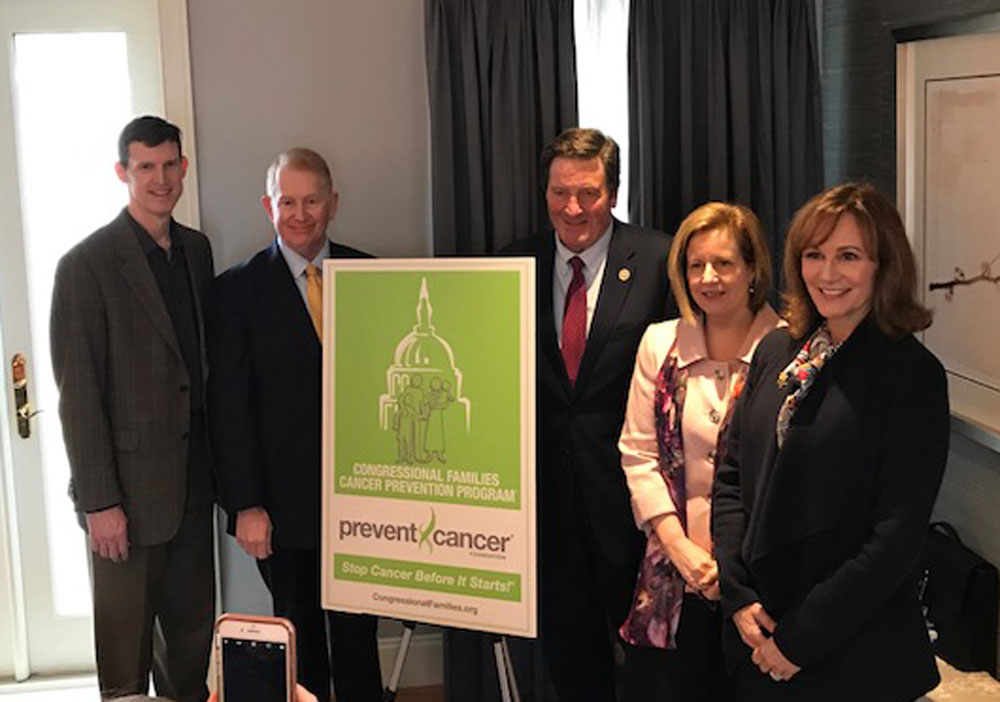On February 14, 2018, Valentine’s Day, I had the honor of representing the ONS at the Congressional Families Caucus with Alec Stone, ONS director for public affairs, who made the connection between Congressional Families and ONS. The Congressional Families Caucus is made up of spouses of congressional members serving in the House of Representatives and Senate.
It was a unique opportunity to have a private and frank conversation about cancer with people who speak truth to power—congressional spouses. Although those in Washington call this the “power of pillow talk,” it was a special occasion to talk with spouses of both political groups in Congress.
The program—cosponsored by the Prevent Cancer Foundation—was called Check Your Mate: Preventing Cancer. The audience was very interested in an oncology nurse’s perspective on checking your mates for signs of cancer such as suspicious moles or unknown lumps. Steps for cancer prevention included discussions on healthy eating and exercise, screening for cancer, and the emotional burden of survivorship for patients and families.
Alongside the official physician for Congress and the director of the congressional fitness center, I explained how spouses can notice subtle changes in their partners that may indicate cancer. The discussion delved into genetics, family history, and personal stories of breast cancer, prostate, and pancreatic cancer and what happens when diseases metastasize.
I provided education on reducing risk factors for cancer. We discussed screening procedures like colonoscopies, Pap tests, and human papillomavirus vaccinations. We also discussed early detection efforts like lung computed tomography scans for people with more than 30-year smoking histories. As always, it was refreshing to hear how respected nurses—especially oncology nurses—are among those married to elected officials. Many had a story about a nurse who had an impact on their lives.
Two representatives also stopped by and spoke to our group. They acknowledged that cancer is a top health priority in Congress and that the National Institutes of Health (NIH) holds a special place for congressional members. They pledged their dedication to providing increased NIH funding to ensure continued support for cancer research, treatment, and cures.
Although this was a unique opportunity for ONS, I am reminded that we can all make a difference in educating policy leaders at a local, state, and national level. Nurses have been voted the most trusted profession for 14 years in a row. We are trusted advocates for quality health and cancer care at many levels. Advocacy doesn’t happen only in Washington, DC. You can contact local representatives, city council members, or your county health director. Today’s state representative may be tomorrow’s U.S. senator.
We can share the stories of our patents, their families, and their caregivers to bring the reality of cancer to those in power. We can raise our voice to educate the public about cancer, promote risk reduction and regular screening, ensure a well-trained workforce in cancer care, and advocate for effective, affordable, and accessible care for everyone. With our numbers, collective experience, and the trust of the public, we have the strength to impact public policy. Let’s mobilize together and reach out to those in power to transform cancer care.






